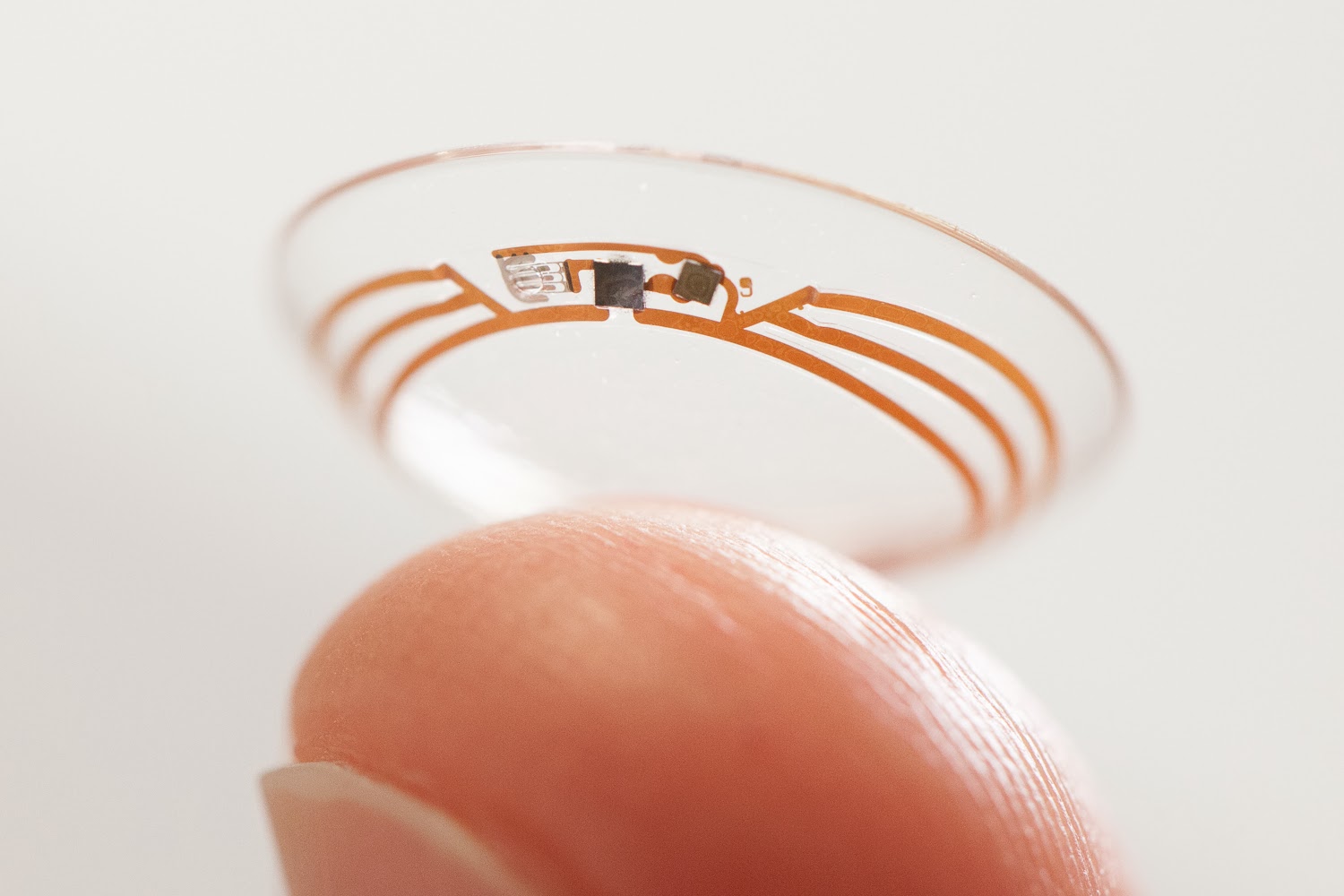Google contact lense to monitor glucose levels in diabetic patients
When Google announced Google Glass; we almost certainly knew that Google engineers would definitely develop a contact lens that would replace the smart glasses. The good news is that Google[X] team has developed a prototype contact lens but it isn't a replacement of the Google Glasses yet. The Google contact lens would act as a glucose level monitor for the diabetic patients, monitoring the glucose levels in blood at the rate of once every second and keep the users alerted about the happenings inside their body.
 Brian Otis and Babak Parviz, the co-founders of the project at Google #-Link-Snipped-# describing their project. The authors mention that diabetes is a very wide-spread problem affecting nearly 1 person in every 19 people on the planet. Managing diabetes is like a part-time job; with a constant effort to keep the blood sugar levels in check. The spikes in the glucose levels can be dangerous and monitoring them on a real time would need sophisticated electronics constantly attached to the body.
Brian Otis and Babak Parviz, the co-founders of the project at Google #-Link-Snipped-# describing their project. The authors mention that diabetes is a very wide-spread problem affecting nearly 1 person in every 19 people on the planet. Managing diabetes is like a part-time job; with a constant effort to keep the blood sugar levels in check. The spikes in the glucose levels can be dangerous and monitoring them on a real time would need sophisticated electronics constantly attached to the body.
The researchers thought that the solution to the problem may lie in miniature electronics and found their answers in electronics chip embedded between two soft layers of the contact lens material. The prototype (shown in the photo) can log the readings and also generate warnings to the wearer. The team is considering integration of LED lights in the system that would light up should your glucose levels shoot up beyond threshold.
The project authors are also discussing the practical implementation of the product but acknowledge that a lot of work needs to be done before people can start using these contact lenses.
We'd like to ask all our CEans their opinion on wearable electronics. Do you think wearable electronics is going to be an integral part of our lives in near future? Or are we just overdoing micro-electronics in the name of innovation?
We're looking for your opinions!

The researchers thought that the solution to the problem may lie in miniature electronics and found their answers in electronics chip embedded between two soft layers of the contact lens material. The prototype (shown in the photo) can log the readings and also generate warnings to the wearer. The team is considering integration of LED lights in the system that would light up should your glucose levels shoot up beyond threshold.
The project authors are also discussing the practical implementation of the product but acknowledge that a lot of work needs to be done before people can start using these contact lenses.
We'd like to ask all our CEans their opinion on wearable electronics. Do you think wearable electronics is going to be an integral part of our lives in near future? Or are we just overdoing micro-electronics in the name of innovation?
We're looking for your opinions!
0
